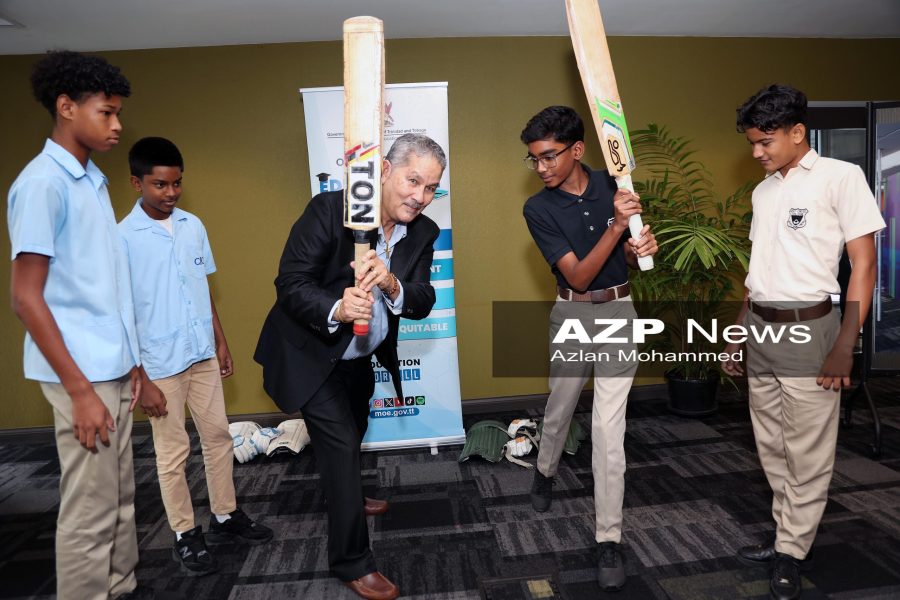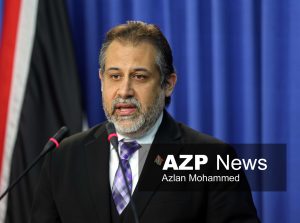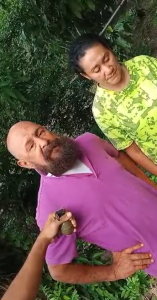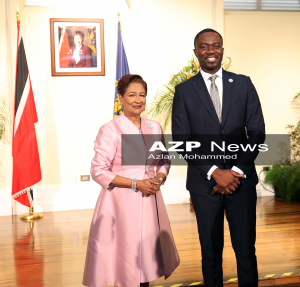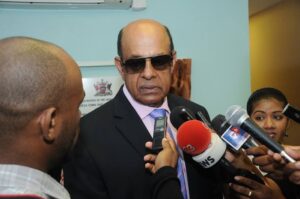Caption: Larry Gomes – Mr Dependable – shows his signature cricket shot to pupils of his alma mata Holy Cross College Gabriel Maharaj, right, and Nathan Ragoobar, with bat, as well as St Mary’s College students Avinash Boodram and Jayson Bowyer
By Prior Beharry
Larry Gomes could have secured financial freedom in 1983 by joining the West Indies “rebels” to play cricket in apartheid South Africa.
Speaking to the media during the launch of his book, Larry Gomes – Mr Dependable – My Life in Cricket, at the Ministry of Education’s head office in Port of Spain on Wednesday, he reflected on his decision.
“My wife was pregnant with my second child so I didn’t want her to have a child born in South African because of the apartheid system in those days,” Gomes said.
Seventeen players participated in that “rebel tour” to South Africa, including Lawrence Rowe (captain), Richard Austin, Herbert Chang, Sylvester Clarke, Colin Croft, Alvin Greenidge, Bernard Julien, Alvin Kallicharran, Collis King, Everton Mattis, Ezra Moseley, David Murray, Derick Parry, Franklyn Stephenson, Emmerson Trotman, Ray Wynter, and player/manager Albert Padmore.
At the time, South Africa faced an international sports ban due to its apartheid policies, which enforced racial segregation.
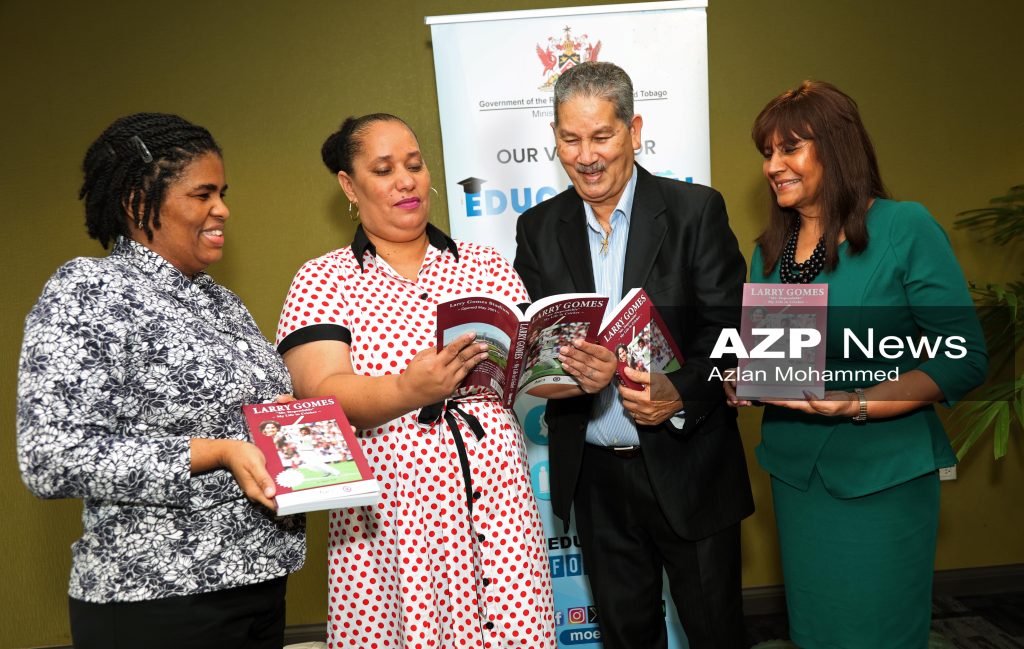
Gomes expressed no regrets but speculated on how the public in Trinidad and Tobago might have reacted had he joined the tour
He said, “I have no regrets really. If I had gone to South Africa I wouldn’t have to work again because I was the only player that negotiated a contract with Dr Ali Bacher. The rest of the guys went down there without any contract.
“I refused on principle, the wife was pregnant too. I wanted to come back home. Home is home. I didn’t want to stay in Canada all the time. I love my country and so I wanted to come back home. I didn’t know what the reaction would have been with the public if I had gone.”
Gomes, known as Mr Dependable, provided stability batting at No 3 in a legendary West Indies team that included Gordon Greenidge, Desmond Haynes, and Viv Richards.
At the book launch, author and researcher Nasser Khan highlighted Gomes’ courage, noting that six of his nine Test centuries were scored against Australia, facing bowlers like Dennis Lillee and Jeff Thomson, without a helmet.
Gomes played 60 Test matches, scoring 3,171 runs at an average of 39.63, with a highest score of 143. While he appreciates T20 cricket, he still prefers Test cricket, the game’s purest form.
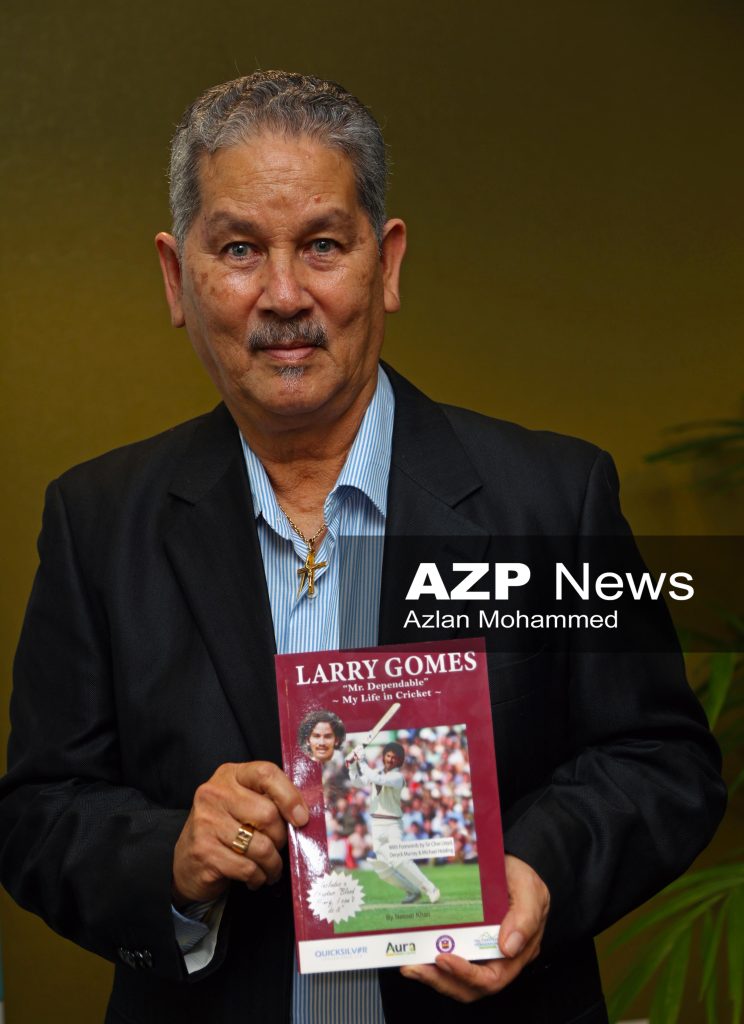
Reflecting on the financial changes in cricket, Gomes compared modern contracts to his era. “It’s a different world, and money is in T20. Nicholas Pooran, for example, just signed a contract for nearly US$2 million for six months—more than we made in our entire careers.”
Gomes recalled how players like Gary Sobers and the Three Ws – Sir Frank Worrell, Sir Everton Weekes, and Sir Clyde Walcott – shared hotel rooms and travelled by boat. Now, players enjoy individual rooms.
He said it was a different era now when players now have their own rooms. Gomes said some of his roommates included a number of Guyanese players such as Faoud Bacchus, Alvin Kallicharran and Colin Croft.
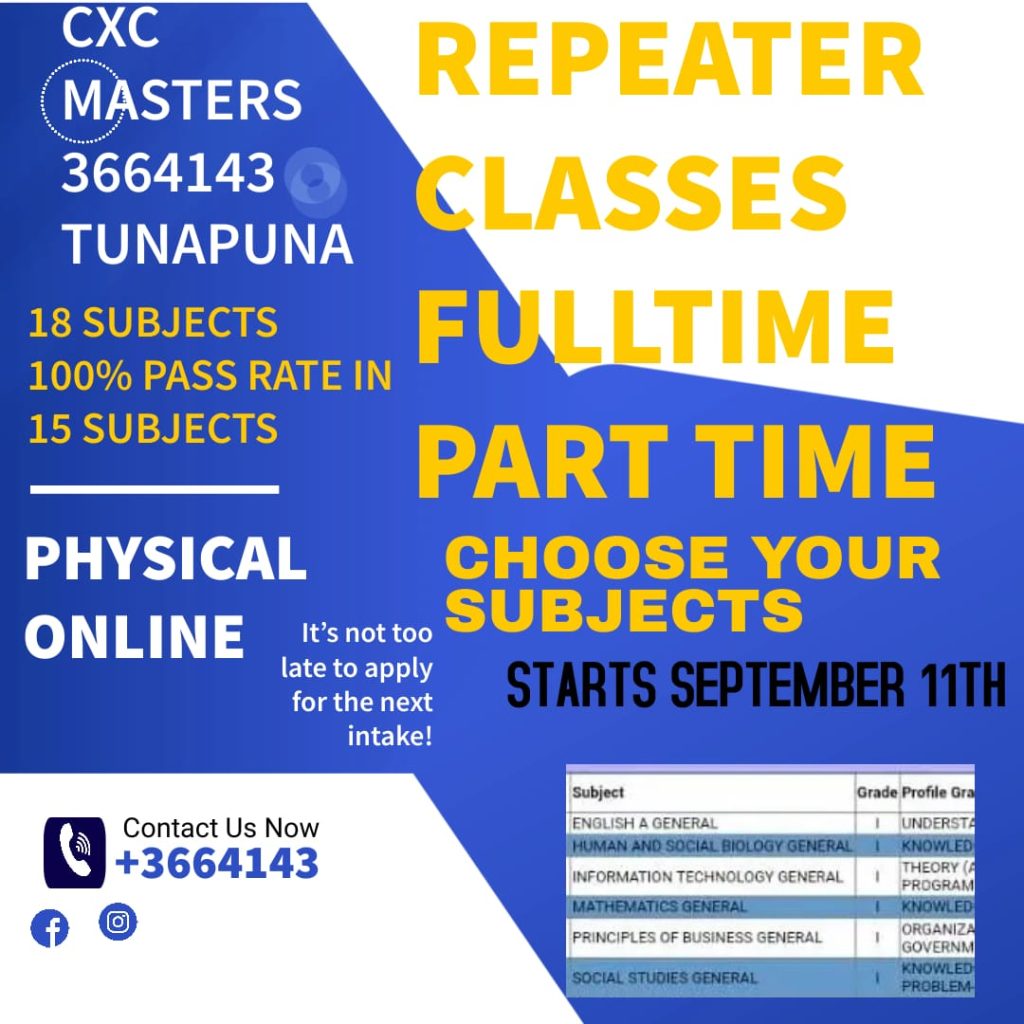
He said there was the need for the current West Indies cricketers to take pride in their performances. “Once you are selected and wearing the maroon caps, you should be playing for the people of the West Indies, the entire Caribbean. I am not seeing that.”
Also speaking at the book launch were Minister in the Ministry of Education Lisa Morris-Julian, acting Curriculum Coordinator Mignon King, and Aurora Energy Group representative Nicholas Hosam. Morris-Julian praised Gomes for his unwavering representation of Arima.
The book will be distributed to libraries and schools throughout the country.
![]()


